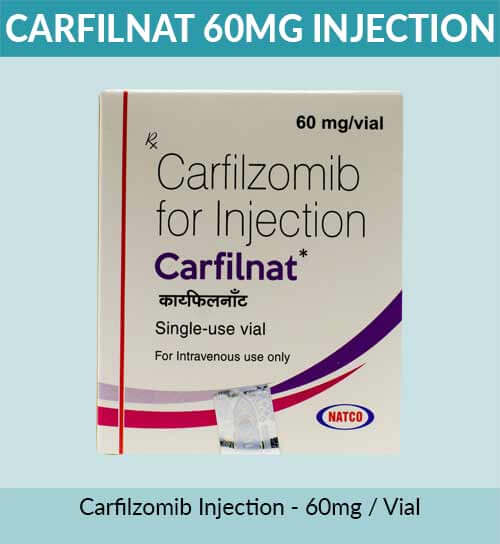Carfilzomib
Carfilzomib is a medication used in the treatment of multiple myeloma, a type of cancer that affects plasma cells in the bone marrow. It belongs to a class of drugs known as proteasome inhibitors.
Carfilzomib works by inhibiting the activity of proteasomes, which are cellular structures involved in the breakdown of proteins. By blocking proteasome function, carfilzomib disrupts the normal protein degradation process in cancer cells, leading to their accumulation and ultimately causing cell death.
The medication is typically administered intravenously and may be used in combination with other chemotherapy drugs for the treatment of relapsed or refractory multiple myeloma. The specific dosage and treatment regimen are determined by the healthcare provider based on the individual’s condition, response to therapy, and other factors.
Common side effects of carfilzomib may include fatigue, nausea, diarrhea, low blood cell counts, and peripheral neuropathy (numbness or tingling in the extremities). More serious side effects, such as heart problems or lung toxicity, can occur but are less common. Regular monitoring of cardiac function, blood cell counts, and other parameters may be recommended during treatment.
Carfilzomib should only be used under the guidance and prescription of a qualified healthcare professional experienced in the treatment of multiple myeloma. It may interact with other medications, so it is important to inform the healthcare provider about all medications being taken, including over-the-counter drugs and supplements.
In summary, carfilzomib is a medication used in the treatment of multiple myeloma. It inhibits proteasome activity to cause the accumulation of proteins in cancer cells, leading to their death. Regular monitoring and adherence to healthcare provider instructions are important during carfilzomib treatment.
Note – The brand names and product descriptions used on this site are for informational purposes only and are the property of their respective owners.

